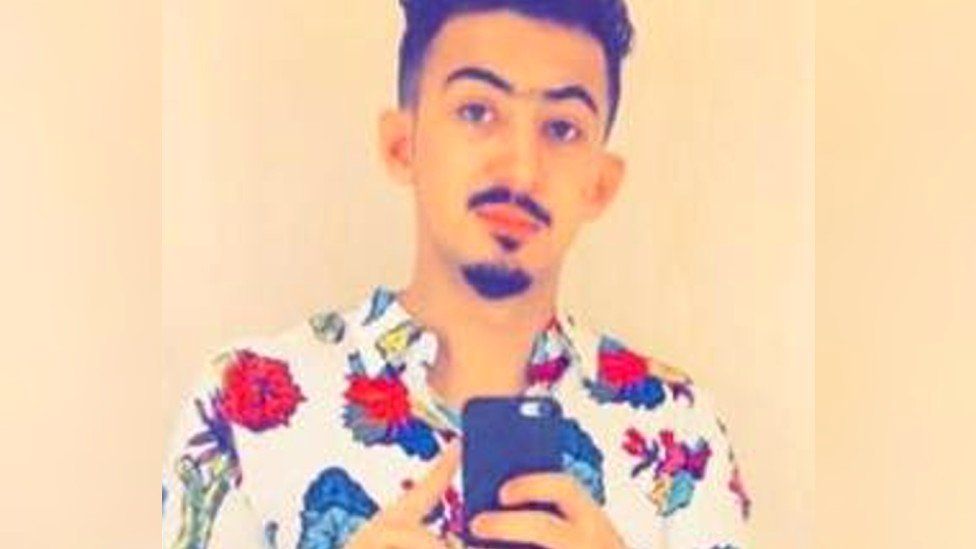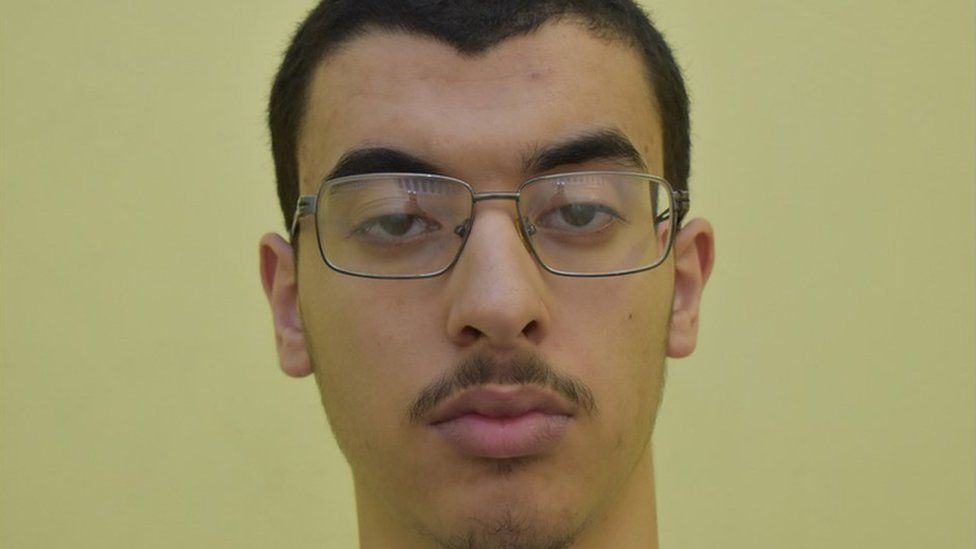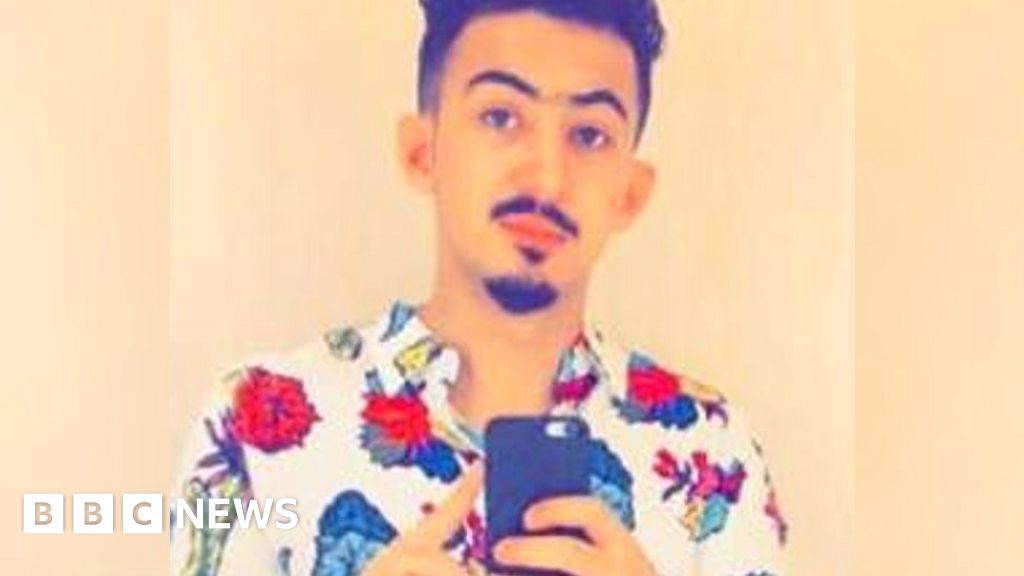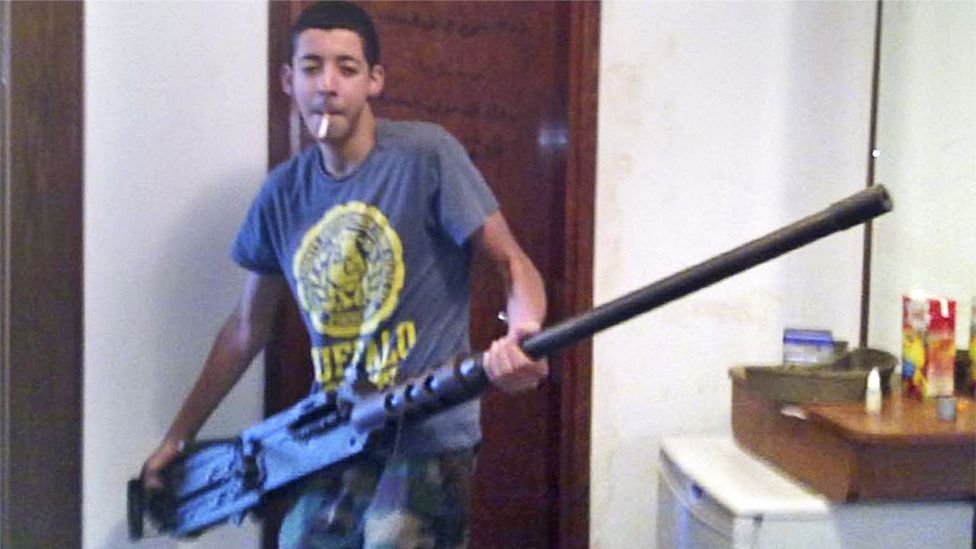
A former suspect in the Manchester Arena bombing had his British citizenship revoked and then returned after MI5 changed its view of his role in the attack, the BBC can reveal.
Mohammed Soliman, 26, was arrested in Libya after being stripped of his citizenship over suspicions he helped prepare the May 2017 attack.
He appealed the decision and said he was mistreated while detained in Libya.
But the government avoided a court case by returning his citizenship in 2021.
He has always said he did not knowingly help the bombers.
The Home Office declined to answer specific questions about the case, but said the UK has one of the world’s most robust counter-terror systems.
By not proceeding to a full hearing, the court did not consider Mr Soliman’s claims about ill treatment in Libya or how he came to be arrested there, including any role played by British intelligence.
He was detained for eight months, his mother said in a police witness statement.
The BBC has been told he was arrested on the basis of information from the UK.
Reporting restrictions preventing Mr Soliman from being named in relation to these events have now been lifted after the BBC wrote to the court, allowing the story to be told for the first time.
Twenty-two people were killed and hundreds injured when Salman Abedi detonated a suicide bomb at the end of an Ariana Grande concert.
MI5 has said publicly that its assessment is that no-one other than Salman and his brother Hashem Abedi, who is serving life in prison, were knowingly involved in the bomb plot.
A public inquiry last week was critical of MI5’s decision making before the attack. It also said the brothers were probably helped by an unknown source in Libya.
During the early weeks of the police investigation, over 20 people were arrested.
A key feature of the case soon emerged: the Abedi brothers had asked several friends and relatives to buy chemicals used to make the bomb.
Mr Soliman, who worked in a takeaway with Hashem Abedi, was among them.
Ten litres of sulphuric acid were purchased using his own bank details and Amazon account in March 2017.
The chemical was delivered to Mr Soliman’s home and officers raided the property after the attack.

All those questioned about buying chemicals denied knowing of the bomb plot and said Hashem Abedi had claimed he needed help purchasing the products for legitimate reasons. None were charged in relation to the attack and some became prosecution witnesses at Hashem Abedi’s trial.
However, Mr Soliman was not in the UK or about to come back, so was not questioned by police and did not provide his version of events.
He had flown out of Manchester in April that year, eventually making his way to stay with family in Benghazi, Libya.
In July 2017, the home secretary Amber Rudd removed his citizenship. As is typical in such cases, she was acting on advice from MI5.
He was arrested by Libyan law enforcement the same month.
Mr Soliman appealed against the removal of his citizenship at the Special Immigration Appeals Commission (SIAC).
The government justified its actions by saying he was an associate of Salman Abedi, might have known about the bombing beforehand, and might have helped in its preparation.
SIAC is a semi-secret court and many of its hearings and rulings are never made public, because they include sensitive evidence which the government says it cannot divulge.
Mr Soliman’s case took place entirely in secret.
It ended in July 2021 without going to a full hearing. The then home secretary Priti Patel “decided to withdraw the decision” to deprive Mr Soliman of his British citizenship, according to the formal document which confirmed the move.
In doing so, she was also acting on advice from MI5, but their advice had changed – without Mr Soliman ever being questioned by British police.
As part of the appeal, Mr Soliman claimed he had been subjected to “detention and ill treatment” abroad after his citizenship was removed.
The BBC has been told his arrest in Libya was ultimately because of information from the UK.
He was not publicly named in the UK in connection to the case until Hashem Abedi’s trial. His arrest in Libya, therefore, could not have been based on information in the public domain.
It is a controversial issue because British police have not made formal requests for suspects in the arena case to be arrested and questioned in Libya, partly owing to the potential for allegations of torture and British complicity in it.
Hashem Abedi was arrested in Libya the day after the arena attack, after his brother had been named as the bomber. British authorities have denied requesting his arrest. He was transferred to the UK in 2019, and later claimed he had been tortured during questioning in Libya.
His lawyers included these claims in an unsuccessful attempt at halting his trial in 2020.
The families of two victims told the BBC how police said that, if Mohammed Soliman was in the UK, he would have been tried alongside Hashem Abedi.

Caroline Curry from South Shields, whose 19-year-old son Liam was killed, said that at the time of the trial a senior detective had claimed Mr Soliman “would have been alongside him charged with 22 counts of murder”.
Liam died alongside girlfriend Chloe Rutherford, 17, whose family say they were told the same thing.
Both families think detectives believed he would not return and the claims would not be tested. In fact, a charging decision had never been taken.
After Mr Soliman’s citizenship was restored, he returned to Britain in October 2021 and was arrested on arrival.
He answered detectives’ questions and denied knowing anything about the bomb plot.
In a witness statement, Mr Soliman said Hashem Abedi had pressured him to let him use his bank card, saying he needed it to buy car engine oil.
“I was not aware and did not suspect that Hashem and/or Salman planned to attack any location or person or carry out any form of terrorist attack,” his statement said.
Mr Soliman also said his flight from Manchester had been planned before Hashem purchased the sulphuric acid, and he was eventually going to Libya, where he was due to enrol at university.
He was told by the police he would not be charged with any offence and would face no further action.
The BBC attempted to contact Mr Soliman for comment but has received no response.
Greater Manchester Police declined to comment.
The Home Office said: “The government, working with our world-class police and security and intelligence agencies, will always take strongest action possible to protect national security and public safety.”

Do you have information about this story? Share your experiences by emailing haveyoursay@bbc.co.uk.
Please include a contact number if you are willing to speak to a BBC journalist. You can also get in touch in the following ways:
- WhatsApp: +44 7756 165803
- Tweet: @BBC_HaveYourSay
- Upload pictures or video
- Please read our terms & conditions and privacy policy
If you are reading this page and can’t see the form you will need to visit the mobile version of the BBC website to submit your question or comment or you can email us at HaveYourSay@bbc.co.uk. Please include your name, age and location with any submission.

